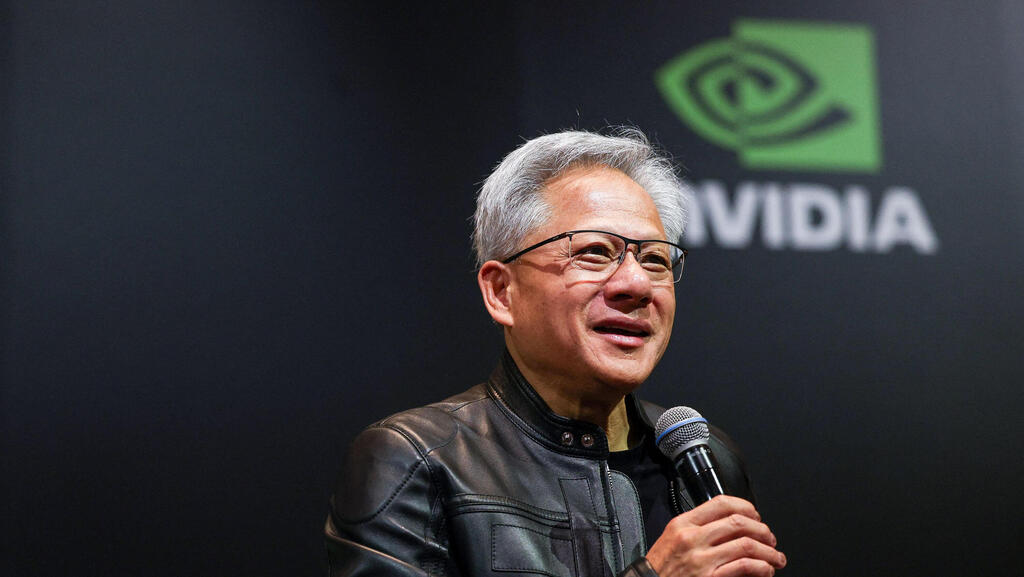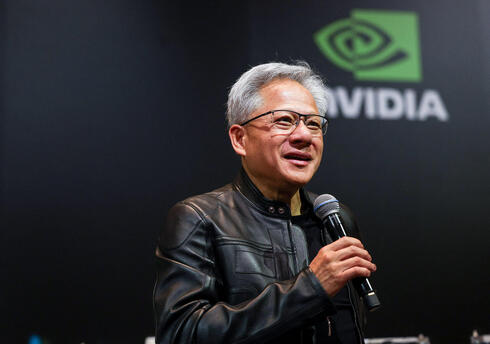
Nvidia CEO: “China already has AI - The question is whether it will run on US platforms”
Jensen Huang forecasts $45B in sales but warns that export bans risk ceding ground in the global AI race.
Even as Nvidia reported another blockbuster quarter with 69% year-over-year sales growth on Wednesday, the maker of artificial intelligence chips warned of mounting risks tied to the escalating technology conflict between the U.S. and China.
Tucked into its quarterly filing with U.S. securities regulators, Nvidia - for the first time - cautioned that restrictions on the use of open-source AI models from China, such as DeepSeek and Qwen, could negatively impact its business. Also flagged were new U.S. rules barring the use of connected vehicle technologies from China - restrictions that could hinder Nvidia’s long-struggling automotive chip business, which has recently shown signs of growth in China.
On a conference call with analysts, Nvidia CEO Jensen Huang praised U.S. President Donald Trump’s decision to rescind an export rule enacted by President Joe Biden, which would have regulated the global flow of Nvidia’s chips. However, Nvidia's filing noted that no new rule has yet been issued in its place, warning that a replacement regulation “may impose new restrictions on our products or operations.”
At the same time, Huang criticized new export curbs imposed by the Trump administration in April. The restrictions prevent Nvidia from selling its H20 chip, developed specifically for the Chinese market - a product Huang called “a springboard to global success.”
The export limits cost Nvidia $2.5 billion in sales during its recently ended fiscal first quarter. The company anticipates an additional $8 billion in lost sales in the current fiscal second quarter. Chinese customers had stockpiled the H20 chips ahead of the ban, generating $4.6 billion in revenue. Nvidia said its China business accounted for 12.5% of total revenue during the quarter.
“The question is not whether China will have AI - it already does,” Huang said. “The question is whether one of the world’s largest AI markets will run on American platforms.” He later added: “AI export controls should strengthen U.S. platforms, not drive half of the world’s AI talent to rivals.”
Huang also argued that allowing Chinese open-source models such as DeepSeek and Qwen to run on Nvidia chips provides U.S. companies with valuable insight into global AI development.
“U.S. platforms must remain the preferred platform for open-source AI,” he said. “That means supporting collaboration with top developers globally, including in China. America wins when models like DeepSeek and Qwen run best on American infrastructure.”
Despite the export restrictions, Nvidia forecast second-quarter sales of $45 billion, plus or minus 2% - slightly below analysts' average estimate of $45.90 billion, according to data compiled by LSEG. That would represent roughly 50% year-over-year growth.
Executives also highlighted prospective deals in Saudi Arabia, the United Arab Emirates, and Taiwan worth potentially billions of dollars in the coming months and years. The upbeat guidance sent Nvidia shares higher in after-hours trading, with analysts concluding that the impact of U.S.-China trade tensions may be less severe than feared.
Related articles:
“Rather than downplay the China hit, \[Huang\] contextualized it as a known, manageable speed bump in an otherwise hyper-accelerated growth narrative,” said Michael Ashley Schulman, chief investment officer at Running Point Capital.
In his remarks, Huang also praised President Trump’s deal-focused tour of the Middle East.
“President Trump wants U.S. tech to lead,” Huang said. “The deals he announced are wins for America - creating jobs, advancing infrastructure, generating tax revenue, and reducing the U.S. trade deficit.”
Huang also expressed agreement with the vision of cabinet officials such as Commerce Secretary Howard Lutnick to bring factories back to the U.S. and automate them with robotics.
“Future plants will be highly computerized and roboticized. We share this vision,” Huang said.
